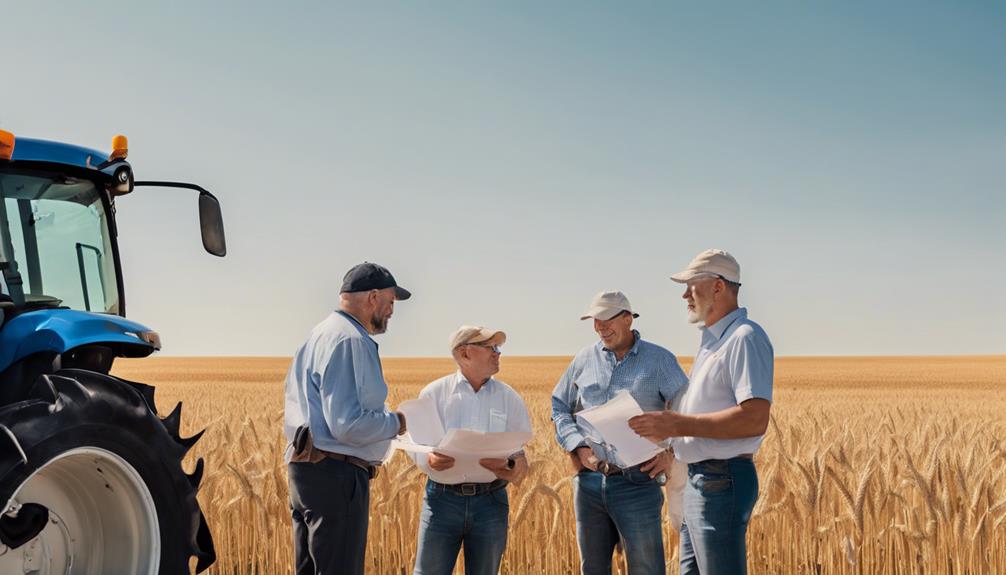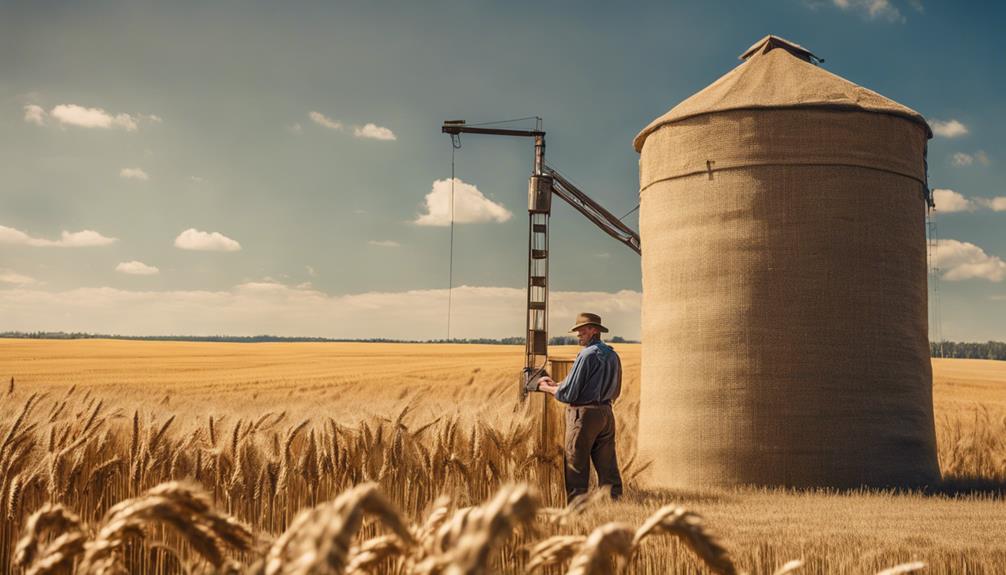When you think about the Wisconsin Grain Dealer Bond, it's clear that it plays a vital role in the agricultural sector. This bond not only safeguards farmers and suppliers but also sets a standard for ethical practices among grain dealers. You might wonder how this bond impacts financial stability and trust within the industry. Understanding its significance can shed light on the broader implications for both dealers and the agricultural community as a whole. So, what exactly does it take to qualify for this bond, and how does it affect your business?
Overview of Grain Dealer Bonds

Grain dealer bonds are essential financial tools that protect farmers and suppliers in the agricultural industry. These bonds serve as a guarantee that grain dealers will conduct their business honestly and pay for the grain they purchase. When you engage with a grain dealer, you want assurance that your hard work won't go unrewarded. That's where these bonds come into play.
By requiring grain dealers to obtain a bond, state regulations ensure that there's a safety net in place. If a dealer fails to pay for the grain or violates other contractual obligations, you, as a supplier or farmer, can file a claim against the bond. This process helps you recover losses, providing peace of mind as you navigate the often unpredictable agricultural market.
Moreover, grain dealer bonds also help maintain industry standards. They encourage ethical practices and accountability among dealers, ensuring that you deal with responsible partners. As you choose a grain dealer, knowing they're bonded can give you confidence in their reliability.
In short, grain dealer bonds are a crucial aspect of the agricultural framework, safeguarding your interests and promoting fair dealings.
Importance of the WI Grain Dealer Bond
Understanding the importance of the WI Grain Dealer Bond is crucial for anyone involved in Wisconsin's agricultural sector. This bond serves as a safety net that protects both farmers and grain dealers in case of financial discrepancies. By securing this bond, you're demonstrating your commitment to ethical business practices and financial responsibility.
When you operate as a grain dealer, you're handling significant amounts of money and commodities. If a dealer fails to meet their obligations, whether due to bankruptcy or fraud, the bond ensures that farmers can recover their losses. This assurance fosters trust within the community, encouraging farmers to engage with dealers more freely.
Moreover, having the WI Grain Dealer Bond can enhance your credibility. It signals to your clients and partners that you take your responsibilities seriously and are prepared to back them up with financial security. This can lead to increased business opportunities and stronger relationships.
Eligibility Requirements for Dealers

To operate as a grain dealer in Wisconsin, you must meet specific eligibility requirements that ensure both compliance and reliability within the industry.
First, you need to be at least 18 years old and a resident of Wisconsin or have a business entity registered in the state. This residency requirement helps the state maintain oversight of its grain dealers.
Next, you must demonstrate financial responsibility. This typically involves showing proof of adequate capitalization or financial backing to ensure you can fulfill your obligations to producers and suppliers.
Additionally, you may need to provide a detailed business plan outlining your operations, which helps establish your commitment to ethical practices.
You'll also need to pass a background check to verify that you have no significant criminal history that could jeopardize your operations. This step is crucial, as it builds trust within the industry and with your clients.
Lastly, you should be aware of the regulations governing grain trading and ensure compliance with all state laws.
Meeting these eligibility requirements is essential for securing your grain dealer bond and successfully operating in Wisconsin's grain industry.
Application Process for the Bond
Applying for a grain dealer bond involves several key steps that ensure you meet all necessary requirements. First, you'll need to gather essential documents, such as your business license, financial statements, and any relevant permits. These documents prove your eligibility and financial stability.
Next, you should complete the bond application form. This form typically asks for information about your business, including its structure, ownership, and operational details. Make sure to double-check all entries for accuracy, as errors can delay the process.
Once you submit your application, the surety company will review your information. They may request additional documentation or clarification, so be prepared to respond promptly. Depending on the company, you might also undergo a credit check, which can influence the bond's terms and cost.
After approval, you'll receive a quote for the bond premium. If you agree to the terms, you'll pay the premium and receive your bond certificate. Keep a copy of this certificate on file, as you'll need it for compliance with state regulations.
Following these steps will help you secure your grain dealer bond efficiently.
Financial Implications and Coverage

When it comes to grain dealer bonds, their financial implications and coverage are crucial for your business's success. These bonds serve as a safety net, protecting you and your clients from potential financial losses. If a grain dealer fails to meet their contractual obligations, the bond ensures that funds are available to compensate affected parties. This coverage can be a deciding factor for your clients when choosing to work with you.
Understanding the costs associated with the bond is also essential. Premiums vary based on factors like your business's financial stability and creditworthiness. By maintaining a strong financial profile, you can secure lower premiums, which directly impacts your bottom line.
Moreover, investing in a bond can enhance your reputation in the industry, attracting more clients and providing you with a competitive edge.
It's vital to review the terms and conditions of the bond carefully. Ensure you're aware of any limits on coverage, as this can influence your risk management strategy.
Impact on the Agricultural Industry
Grain dealer bonds significantly influence the agricultural industry by fostering trust and stability among stakeholders. When you're involved in buying, selling, or trading grain, knowing there's a bond in place can give you peace of mind. This bond acts as a safety net, ensuring that dealers comply with regulations and fulfill their financial obligations.
By requiring dealers to secure these bonds, the industry promotes transparency and accountability. This means when you work with a licensed grain dealer, you can be more confident in their practices. If a dealer fails to meet their commitments, the bond provides a source of compensation, protecting your investment and maintaining market integrity.
Additionally, grain dealer bonds can enhance relationships between farmers and dealers. When trust is established, you're more likely to engage in long-term partnerships, which can lead to better pricing and improved service. This stability encourages more farmers to enter the market, driving competition and innovation.
Ultimately, the presence of grain dealer bonds strengthens the agricultural landscape, making it more resilient to market fluctuations. By prioritizing trust and accountability, you contribute to a thriving agricultural economy that benefits everyone involved.
Conclusion
In summary, the Wisconsin Grain Dealer Bond is essential for protecting your interests as a farmer or supplier. By ensuring that grain dealers meet their financial obligations, this bond fosters trust and accountability in the agricultural sector. If you're considering working with a grain dealer, understanding the bond's importance can help you make informed decisions. Ultimately, it contributes to a more stable and resilient agricultural landscape in Wisconsin, benefiting everyone involved.


